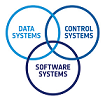Speaker
Description
Through a long history of rigorous techniques and processes, the field of spacecraft Guidance Navigation and Control (GNC) has evolved over the years to safely and robustly meet the GNC challenging needs of rather complex mission (e.g. high pointing accuracy, agile manoeuvring). In particular, the field of Robust Control has achieved this in complex, uncertain and partially observable dynamic environments, allowing the GNC community to tackle the stability and performance robustness formally from specification to V&V.
Despite the great advances in the last decades, there are still important limitations for the system control discipline to solve. As a primary example, Robust Control often requires strong assumptions, such as linearity and time-invariance, which rarely apply in the real world. Furthermore, characterisation of system uncertainty for both, the “known unknown” and the “unkwnown unknown” in practice leads to rather conservative designs at the expense of performance. Finally, the most extended control paradigms do not offer on-line adaptation, missing the chance to take advantage of the real world information to improve once the GNC solution is deployed.
Besides, more modern and complex control techniques offer partial solutions to the conservatism and/or adaptivity needs. In particular techniques such µ-Synthesis, LPV, MPC, Fuzzy Logic or Extended Kalman filters were born to address those issues. However, the reality is that these techniques are still to be fully embraced by industry as they are subject to other constraints such as model availability, formulation complexity, convergence guarantees, on-board computational cost and/or scalability.
Finally, in a broader sense GNC techniques and solutions are heavily relying on models. However, GNC solutions are sometimes required to work under physical phenomena of a highly (or even mostly) uncertain nature such as micro-gravity slosh, poorly characterised environmental effects or unforeseen hardware behaviour for which today’s GNC approach is significantly limited.
The application of AI techniques to both GNC solution and processes promises to enhance the way in which real/realistic data is exploited in the GNC system decision making offering potentially cheaper and smarter solutions. In particular promising aspects of AI for GNC are:
· The relaxation of system hypothesis/assumptions and the ability to take into account non-linearity and time invariance at design and implementation phase through a rather generic framework (or at least less specialised than Robust Control frameworks)
· The on-line adaptation capability and/or potential against uncertain physical phenomena of certain branches of AI
· The data fusion capacity/semantic abstraction power to efficiently handle extremely large inputs (e.g. visual information) for complex perception, navigation, guidance or high level decision making tasks
· Their efficiency as universal approximators on applications requiring real-time optimisation
However, for AI techniques to succeed in GNC these applications, they will need to provide sufficiently generic, safe, robust, efficient and verifiable solutions. Today, only a limited subset of AI techniques are of this nature and thus both fields will have to evolve.
This presentation discusses the place of AI within GNC solutions and processes from an industrial perspective, covering use cases of all range of complexity, from quick wins on hybrid AI systems all the way to on-line Reinforcement Learning systems. These can make GNC solutions cheaper, smarter and more scalable. We discuss the results and potential shown on some initial use cases as well as set out some preliminary conclusions. Finally, the presentation addresses some of the most important gaps and challenges that industry will face to embrace and rip the full potential of AI not only within the GNC system but more broadly across the Functional Avionics chain.

